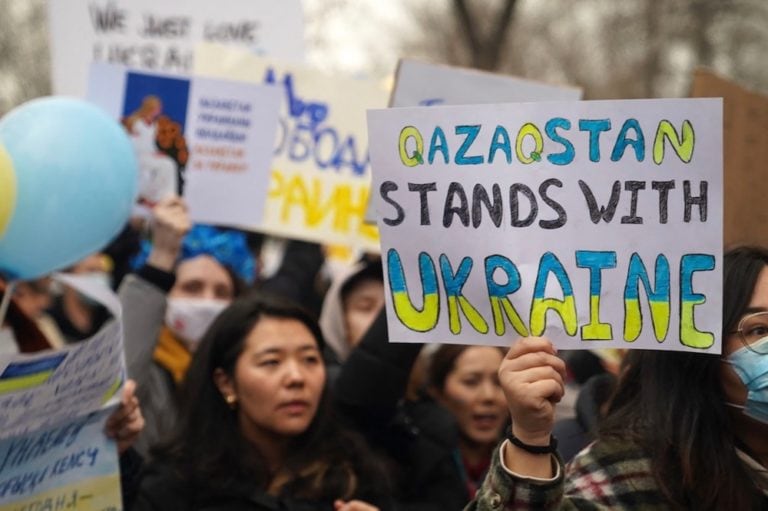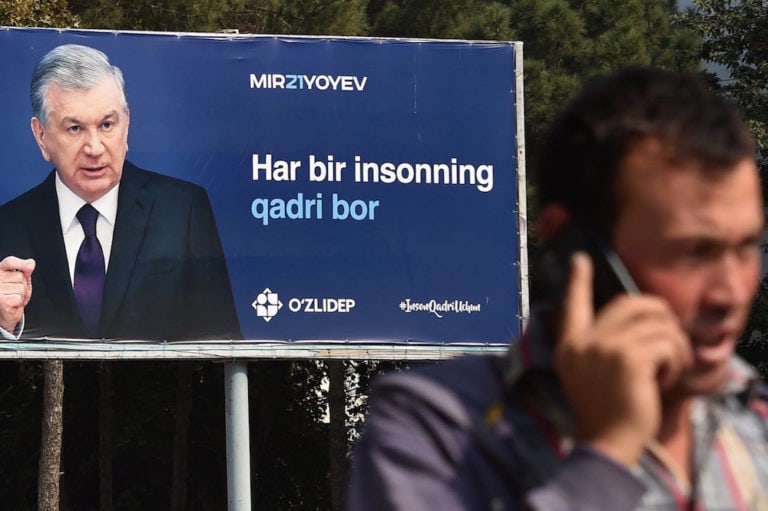(Freedom House/IFEX) – The following is a 24 March 2003 Freedom House press release: UZBEKISTAN LAUNCHES MAJOR CRACKDOWN ON INDEPENDENT PRESS NEW YORK, March 24, 2003 — Freedom House today expressed deep concern over a new wave of crackdowns on journalists in Uzbekistan. Press freedom, already fragile in that country, is now under more severe […]
(Freedom House/IFEX) – The following is a 24 March 2003 Freedom House press release:
UZBEKISTAN LAUNCHES MAJOR CRACKDOWN ON INDEPENDENT PRESS
NEW YORK, March 24, 2003 — Freedom House today expressed deep concern over a
new wave of crackdowns on journalists in Uzbekistan. Press freedom, already fragile in that country, is now under more severe governmental threat.
“At a time when Uzbekistan’s support is crucial in the war against terrorism, it is vital that the West make clear that the Uzbek government’s renewed backlash on independent reporting and free media will not be tolerated,” said Freedom House Executive Director Jennifer Windsor.
Although censorship was officially abolished in May 2002, the government of President Islam Karimov is maintaining a firm grip on Uzbekistan’s media.
The clampdown follows a recent pattern of harassment against Uzbek journalists. Over the last year, numerous journalists have been fired from their jobs, assaulted, arrested, or sentenced to prison terms. In February alone, eight journalists were detained, arrested or sentenced by the
government.
This month, authorities beat two reporters: Khusnutddin Kutbiddinov, a Radio Free Europe/Radio Liberty correspondent, and Yusuf Rasulov, a Voice of America correspondent, while they were covering a protest carried out by 40 women.
In other cases, Ergash Babajonov, a journalist and member of the opposition party “Birlik,” was detained and tortured by Uzbek authorities for five days. Babajonov, 61, had written articles uncovering governmental corruption. Oleg Saripulov, an assistant to an independent journalist, was detained and held for two days following the publication of a series of articles citing corruption and power struggles in the government.
Newspapers have also been shut down.
The Ministry of Education’s newspaper “Milli Talim” (National Education) was closed for “grammatical errors.” Also, the chief editor of the newspaper Hurriyat (freedom), Amirkul Karimov, was removed from his position following the publication of articles critical of the discrepancy between the rich and poor in Uzbekistan.
“President Karimov is clearly sending the message that dissent will not be tolerated,” said Ms. Windsor. “We urge President Karimov to immediately cease this assault on press freedom and we call upon the international community to hold the Uzbek government accountable.”
In its forthcoming annual survey on Press Freedom, Freedom House rates Uzbekistan “Not Free,” noting that its overall score worsened as a result of deteriorating press conditions during 2002. The report says, “critical journalists frequently experience harassment, death threats, and physical violence.”
Freedom House background reports on Uzbekistan can be found online at:
www.freedomhouse.org/research/freeworld/2002/countryratings/uzbekistan.htm
www.freedomhouse.org/research/nitransit/2002/uzbekistan2002.pdf
www.freedomhouse.org/research/pressurvey.htm


